Africa
South Africa to probe whether prosecutions of apartheid crimes were blocked
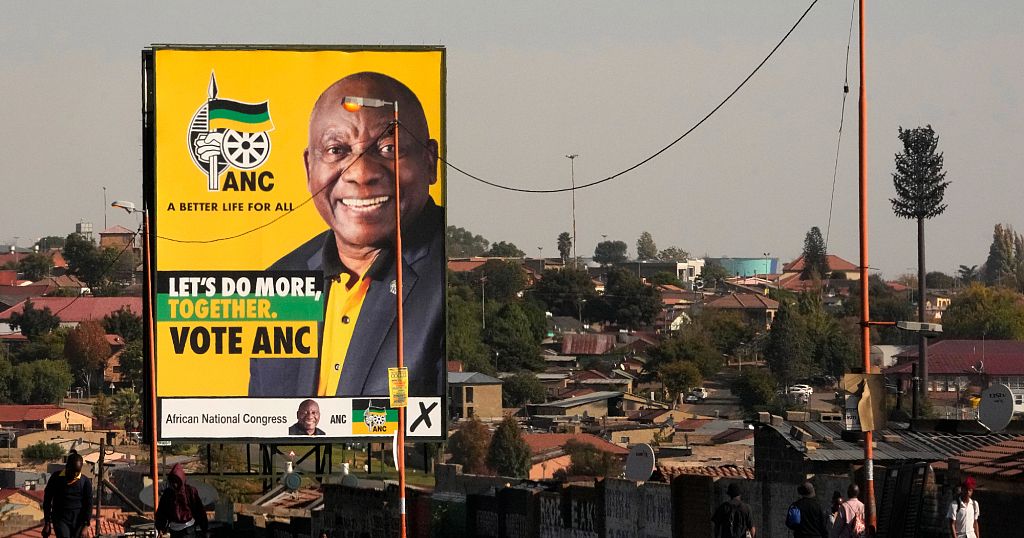
South African President Cyril Ramaphosa ordered an inquiry Wednesday to establish whether previous governments led by his party intentionally blocked investigations and prosecutions of apartheid-era crimes.
The landmark move, which survivors and families of those who were killed have demanded for more than 20 years, will address allegations of “improper influence in delaying or hindering” investigations that have been levelled against post-apartheid governments led by the African National Congress party, Ramaphosa’s office said in a statement.
The ANC was the organization at the forefront of the battle against the system of white minority rule and led South Africa to democracy in 1994. But ANC-led governments since then have been criticized by some for prioritizing national reconciliation ahead of justice for victims.
Ramaphosa’s announcement of a judicial commission of inquiry came after 25 survivors and relatives of victims of apartheid-era crimes launched a court case against his government in January seeking damages. They alleged that successive South African governments since the late 1990s had failed to properly investigate unresolved killings, disappearances and other crimes during the time of forced racial segregation despite recommendations made by the post-apartheid Truth and Reconciliation Commission.
The new inquiry was part of a settlement agreement in the January court case, Ramaphosa’s office said.
“President Ramaphosa appreciates the anguish and frustration of the families of victims, who have fought for so many years for justice,” it said.
The Truth and Reconciliation Commission was set up in 1996 by then-President Nelson Mandela under the chairmanship of fellow Nobel Peace Prize winner Desmond Tutu. Its mission was to expose and record apartheid-era crimes and give some of those responsible an opportunity to confess their role, including members of the apartheid government’s state security forces that were implicated in many killings.
Some were granted amnesty from prosecution, but others didn’t come forward and thousands were denied amnesty.
One of the most prominent unresolved cases is that of the Cradock Four, a group of Black anti-apartheid activists who were abducted and murdered by security forces in 1985. Their bodies were burned and security officers were suspected of torturing them.
Six former police officers appeared before the commission in 1999 over the murders of Fort Calata, Matthew Goniwe, Sicelo Mhlauli, and Sparrow Mkonto, but none of them were granted amnesty.
No one has been prosecuted for the killings and the circumstances of the deaths have never been fully revealed. They are among the thousands of crimes during apartheid where victims and families still haven’t seen justice.
Lukhanyo Calata, whose father Fort was one of the Cradock Four, is part of the group that took the current South African government to court in January. He said at the start of that court case that successive South African governments since the administration of President Thabo Mbeki from 1999-2008 had failed to act on the commission’s recommendations and had denied victims and their families justice. He and other relatives say that government ministers intervened to prevent the investigation and prosecution of crimes.
While the majority of the victims of apartheid-era crimes were Black, whites have also sought justice decades later.
Africa
DR Congo seeks to lift former president Kabila’s immunity over alleged war crimes
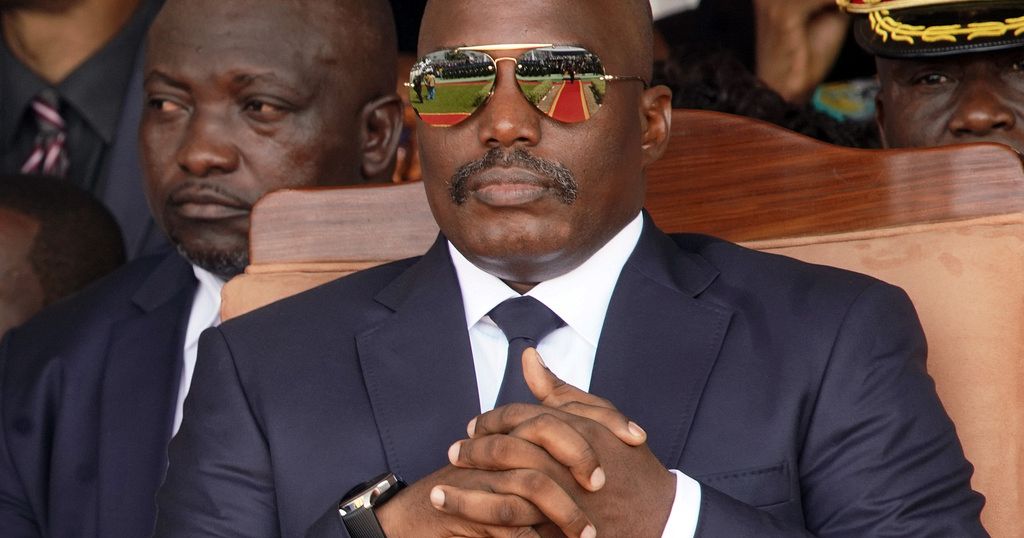
The Democratic Republic of the Congo (DRC) has taken a historic step by officially requesting the removal of parliamentary immunity for former President Joseph Kabila, citing serious allegations including war crimes and support for armed rebellion.
Justice Minister Constant Mutamba announced that the Congolese military prosecutor has submitted a formal request to the Senate to lift Kabila’s immunity. As a former head of state, Kabila holds the status of senator for life, which currently protects him from prosecution.
Authorities claim to have evidence implicating Kabila in “war crimes, crimes against humanity, and the massacres of civilians and soldiers,” particularly through alleged support for the M23 rebel group. M23 has been active in North Kivu, where its offensives have destabilized the region and displaced millions.
Joseph Kabila ruled the DRC from 2001 to 2019. He left the country in late 2023 and has been residing primarily in South Africa. Recently, he expressed a desire to return to the DRC and contribute to resolving the crisis in the east. He denies all allegations leveled against him.
The timing of this legal move is significant. It coincides with ongoing peace efforts between the DRC and Rwanda—accused of backing M23—under U.S. mediation, with a peace agreement expected by May 2. Meanwhile, the Congolese government has suspended Kabila’s political party, the People’s Party for Reconstruction and Democracy (PPRD), and threatened to seize assets belonging to him and his associates.
Kabila’s allies view the legal action as politically motivated. Ferdinand Kambere, PPRD’s permanent secretary, accused President Félix Tshisekedi’s administration of trying to block Kabila’s return to the political scene. He further argued that the current leadership bears responsibility for the spiraling conflict in the east.
This political escalation comes amid worsening violence in eastern DRC, where clashes between government forces and M23 rebels have left around 3,000 people dead and nearly 7 million displaced since the beginning of 2025.
If the Senate approves the request, it could pave the way for an unprecedented trial of a former Congolese head of state on charges of war crimes, potentially marking a turning point in the country’s fight against impunity.
Africa
US, Ukraine sign minerals deal after Kiev agrees to pay for war support

The U.S. and Ukraine on Wednesday signed off on a deal that will give Washington access to Ukraine’s vast critical minerals and natural resources, finalizing an agreement weeks in the making to compensate the U.S. for its help in repelling Russia’s invasion.
The two sides offered only barebone details about the structure of the deal, which they called the United States-Ukraine Reinvestment Fund. But it is expected to give the U.S. access to Ukraine’s valuable rare earth minerals while providing Kyiv a measure of assurance about continued American support in its grinding war with Russia.
The announcement comes at a critical moment in the three-year war as Trump has grown increasingly frustrated with both sides. The signing comes two months after a different but similar agreement was nearly signed before being derailed in a tense Oval Office meeting involving President Donald Trump, Vice President JD Vance and Ukranian President Volodymyr Zelenskyy.
Earlier Wednesday, Bessent said during a Cabinet meeting at the White House — hours after Ukrainian officials indicated a deal was nearly finalized — that there was still work to do.
“The Ukrainians decided last night to make some last-minute changes,” Bessent said when asked about reports that Ukraine was ready to agree to the pact. “We’re sure that they will reconsider that. And we are ready to sign this afternoon if they are.”
He didn’t elaborate as to the late changes he said Ukraine made.
The U.S. has been seeking access to more than 20 raw materials deemed strategically critical to its interests, including some non-minerals such as oil and natural gas.
The negotiations come amid rocky progress in Washington’s push to stop the war.
Africa
Egypt and Angola strengthen bilateral ties during Cairo meeting
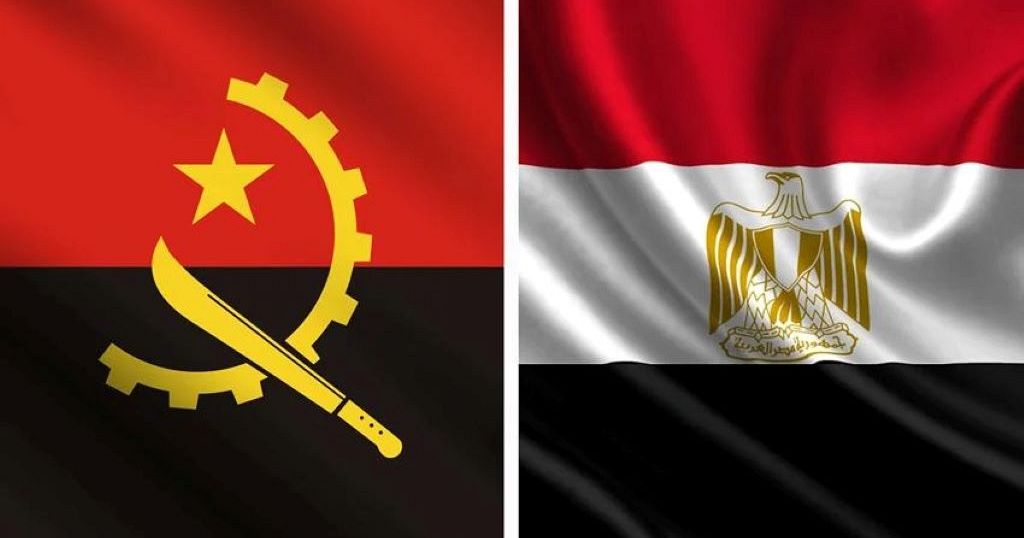
Egyptian President Abdel Fattah El-Sisi welcomed his Angolan counterpart João Lourenço to Cairo on Tuesday.
El-Sisi emphasised the importance of advancing political, economic, and investment ties between the two countries, building on their historical relationship.
“A number of memoranda of understanding have been signed in the fields of communications, information technology, housing, and infrastructure, which will contribute to strengthening cooperation in these areas,” he said
Trade between the two countries reached $34,2 million in 2024, representing an increase of 60 per cent.
The two leaders also discussed key African and international issues including water scarcity, climate change, and the wars in Sudan and Gaza.
El-Sisi praised Lourenço’s mediation efforts in the ongoing conflict in the eastern Democratic Republic of Congo.
Both men stressed the need for a unified African positions on global challenges and stronger representation of the continent in international bodies.
-

 Lifestyle2 days ago
Lifestyle2 days agoAfter a year of turmoil, The Washington Post is taking note of its journalism again
-

 Asia2 days ago
Asia2 days agoFall of Saigon: US officers who broke rank to save lives recall final days of Vietnam War 50 years on
-
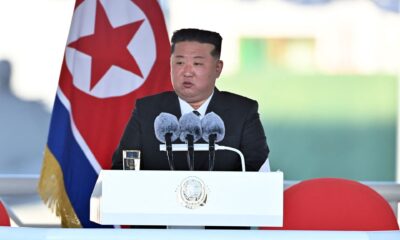
 Conflict Zones2 days ago
Conflict Zones2 days agoAbout 600 North Korean soldiers killed in war in Ukraine, lawmakers say | Russia-Ukraine war News
-
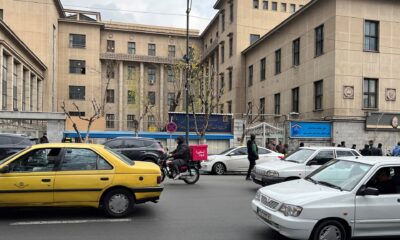
 Middle East1 day ago
Middle East1 day agoIran hangs man convicted of spying for Israel’s Mossad | Espionage News
-

 Europe2 days ago
Europe2 days agoSanaa, Yemen: UK launches strikes against Houthis, in first joint US operation under Trump
-

 Sports2 days ago
Sports2 days agoMaya Merhige: American teenager withstood thousands of jellyfish stings during a 14-hour swim across the Cook Strait
-
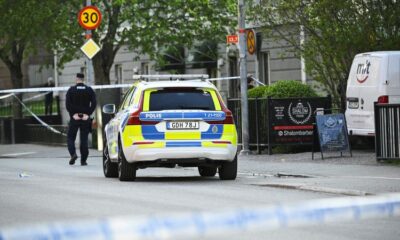
 Europe2 days ago
Europe2 days ago16-year-old suspect detained after 3 killed in shooting in Sweden
-
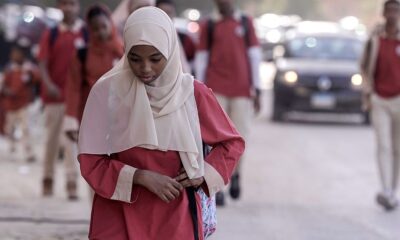
 Africa2 days ago
Africa2 days agoThousands displaced by Sudan war return home from Egypt




